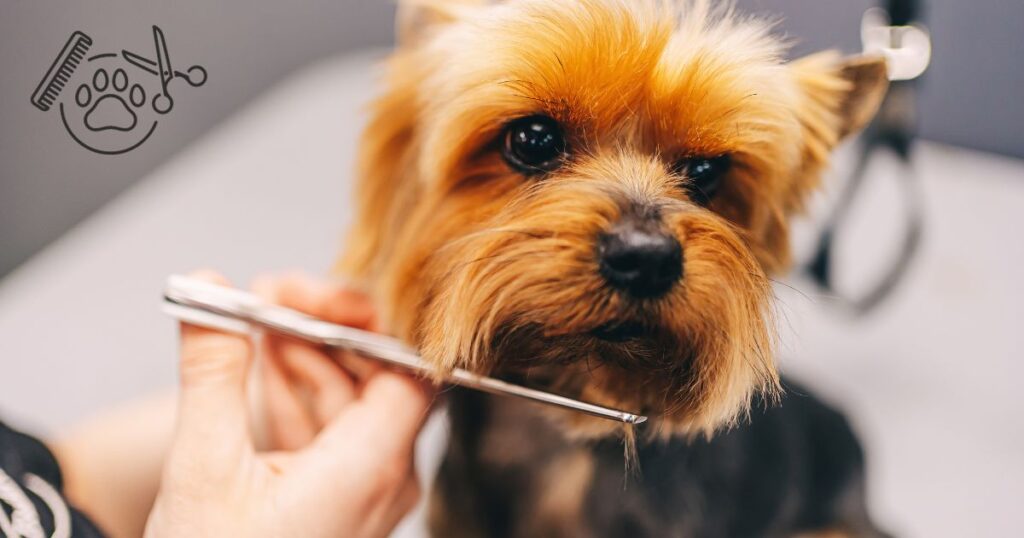Why Do Yorkies Have Bad Teeth? [Yorkie’s Dental Health Guide]
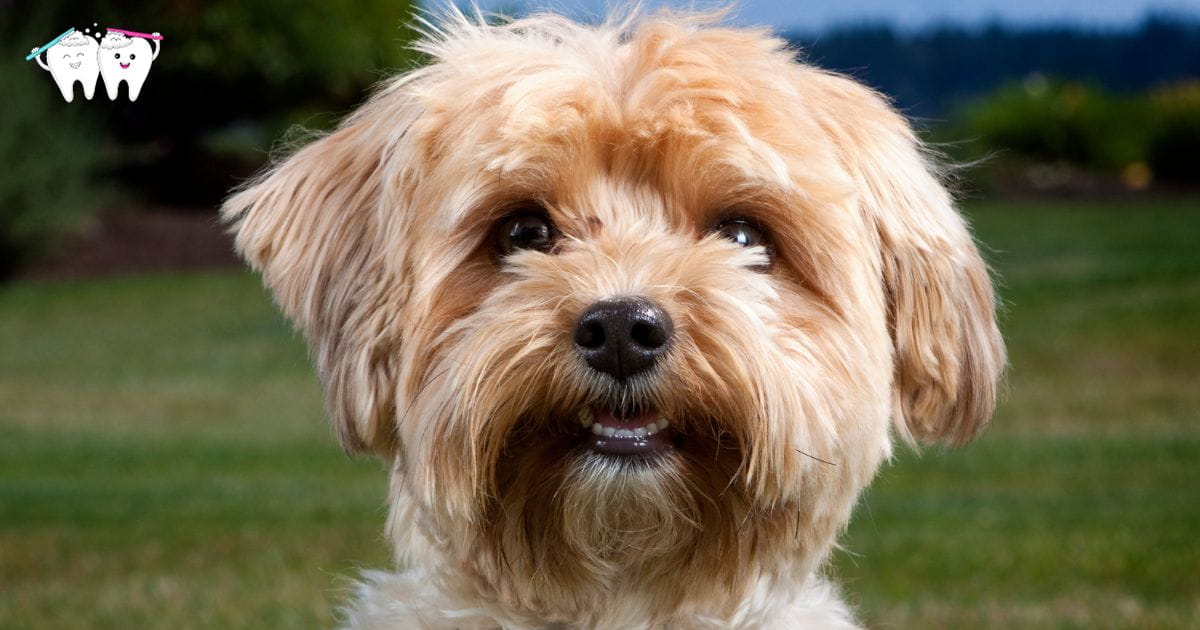
Have you ever wondered why do Yorkies have bad teeth? This question has captivated countless pet owners, and we’re here to shed light on the underlying reasons. Just like humans, Yorkies can face dental challenges that arise from various factors. From the structure of their mouths to the unique characteristics of their teeth, there’s a lot to explore.
Join us as we delve into the interesting world of Yorkie dental health, discovering the causes of their dental issues and providing you with proven care tips to ensure your four-legged friend’s glittering smile.
Understanding Yorkies’ Dental Issues
The dental health of Yorkshire Terriers demands special attention due to their distinct characteristics and small size.
One of the notable characteristics of Yorkies is their small size, which can lead to dental problems such as overcrowding of teeth. These delicate dogs often have limited space in their mouths, resulting in teeth that are closely packed together.
This can lead to misalignment, making it challenging to clean between the teeth effectively. Consequently, food particles and plaque can accumulate, increasing the risk of dental issues.
Dental Infection in Yorkies
Yorkshire Terriers are prone to dental diseases such as gingivitis and periodontitis. Their vulnerability to dental problems is increased by their size, as their small mouths provide limited space for their teeth.
The formation of plaque and tartar on their teeth can lead to inflammation of the gums and, if left untreated, progress to more severe dental diseases. Ensuring proper dental care is essential to stop these diseases from developing and maintain your Yorkie’s oral health.
Regular brushing, appropriate dental toys, and maintaining a healthy diet can significantly contribute to maintaining your Yorkie’s dental health. A combination of these measures will help prevent the buildup of plaque and tartar, reducing the risk of dental issues and ensuring your furry friend’s well-being.
The Role of Size in Oral Health
The small size of Yorkies plays a crucial role in their dental challenges. Their small jaws and sensitive teeth make them exposed to a range of dental issues. Their teeth may be more sensitive compared to larger breeds, making them prone to cracking or breaking.
Additionally, their small mouths can lead to problems like negatively affected baby teeth, which can hinder the growth of adult teeth and impact their dental health.
Promoting Dental Hygiene
Begin with mastering the brushing technique: select a dog-specific toothbrush and toothpaste, then gently clean your Yorkie’s teeth to remove plaque. Make an effort to brush their teeth a few times a week to ensure their smile remains shining.
Another aspect to focus on is their diet. Opt for high-quality dog food that actively supports dental health. Additionally, dental-specific treats and chews can significantly contribute to the reduction of plaque buildup, promoting their oral well-being.
Remember that regular check-ups are crucial. Schedule routine dental appointments with your veterinarian to proactively identify any potential issues in their early stages. This not only ensures your Yorkie’s dental health but also provides access to professional advice on the best dental care practices.
Furthermore, consider the benefits of professional teeth cleanings. Allow your veterinarian to perform thorough dental cleanings, effectively removing stubborn plaque and tartar. By opting for professional cleanings, you’re encouraging good oral health for your furry companion.
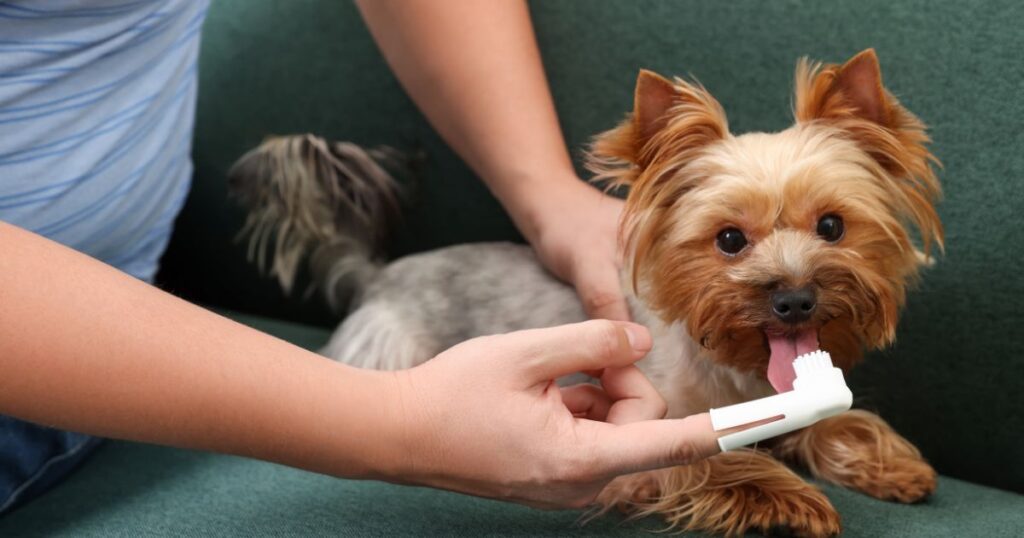
Causes of Yorkies’ Dental Problems
Small Mouths
Yorkies are known for their small size, and this characteristic applies to their mouths as well. Their compact mouths often result in limited space for teeth, leading to overcrowding and misalignment. The limited space makes it difficult to effectively clean between teeth, allowing food particles and plaque to form.
Over time, this buildup could result in dental problems, making the size of their mouths a significant factor in their oral health challenges.
Head and Jaw Physique
Another important factor is the unique physique of Yorkies’ heads and jaws. Their relatively large heads and small jaws create an imbalance that can impact their dental health.
This structural abnormality can contribute to issues like misaligned bites, which in turn affect how their teeth come together during chewing and biting. These misalignments can cause damage to certain teeth, leading to the development of dental problems over time.
The Scissor Bite
The reason why Yorkies have bad teeth is their scissor bite. Yorkies possess a specific bite called a scissor bite, where their upper incisors slightly overlap their lower incisors. Although this is a cute quality, it can also make them more prone to dental issues.
The constant interaction of teeth in this manner can lead to increased wear and tear, likely resulting in crushed or cracked teeth. Understanding this unique bite structure can help in recognizing the areas prone to dental challenges and taking appropriate preventive measures.

Environmental Factors
Beyond their natural traits, external factors also contribute to Yorkies’ dental problems. Dietary choices, for instance, play a vital role. Choosing only wet or soft food can interfere with the natural cleansing process that happens while eating dry kibble.
Additionally, certain habits like chewing on inappropriate items can also worsen dental issues. As responsible Yorkie owners, it’s essential to provide a balanced diet and discourage harmful chewing behaviors.
The complex combination of their small mouths, head size, jaw structure, and external factors like diet collectively influence their dental health.

Why Dental Health for Yorkies is Important?
As Yorkie owners, you play an important role in safeguarding your furry friend’s well-being. By dedicating time to their dental care, you’re not only enhancing their quality of life but also prolonging their years of happiness and companionship. You show how committed you are to their health and happiness by maintaining regular dental care habits.
Promotes Overall Health
The health of your Yorkie’s teeth and gums is more than just a bright smile. Dental issues can have a direct influence on their overall well-being, affecting various aspects of their lives.
Just like in humans, dental problems in Yorkies can lead to discomfort, pain, and even more serious health issues if left untreated. As responsible pet owners, it’s our duty to ensure our furry friends enjoy a pain-free life.
Prevent Dental Pain and Discomfort
Imagine the discomfort your Yorkie might experience if they were to develop dental problems. Painful gum inflammation, tooth decay, and oral infections can result in significant discomfort and hinder their ability to eat, play, and engage with their surroundings.
By prioritizing their dental health, you’re actively taking measures to prevent such painful situations from emerging.
Maintain Nutritional Intake
Maintaining proper dental health is crucial for your Yorkie’s ability to consume food. Dental problems can make it challenging for them to chew effectively, leading to difficulty in consuming diet.
Proper nutrition is essential for their growth, energy levels, and overall life. Ensuring their dental health supports their ability to enjoy mealtime without irritants.
Help to Avoid Serious Health Complications
Neglecting your Yorkie’s dental health can have far-reaching consequences. Oral infections can potentially spread to other parts of their body, leading to more severe health complications.
Additionally, untreated dental problems can impact their heart, kidneys, and other vital organs. Prioritizing dental care reduces the likelihood of these serious health consequences.

The importance of maintaining good dental hygiene for Yorkies cannot be overlooked. Their dental health is directly linked to their overall well-being, comfort, and quality of life. By addressing dental issues proactively and providing regular dental care, you’re ensuring that your Yorkie can enjoy each moment to the fullest.
How to Care for Yorkies’ Dental Health?
Let’s explore preventive measures that you can implement to ensure your Yorkie’s glittering smile and optimal oral health. From proper brushing techniques to the selection of suitable dental toys, these measures will contribute to a lifetime of healthy teeth and gums.
Learn Tooth Brushing Techniques
Regular tooth brushing is essential for Yorkie dental care. To effectively clean your Yorkie’s teeth:
- Choose the Right Tools: Opt for a toothbrush specifically designed for dogs and toothpaste that is safe for them.
- Brush Gently: Gently brush their teeth using circular motions, paying attention to both the outer and inner surfaces of their teeth.
- Frequency Matters: Aim for brushing a few times a week to prevent the buildup of plaque and tartar.
Opt for a Dental-Friendly Diet and Chews
What your Yorkie consumes plays a crucial role in their dental health:
- High-Quality Diet: Opt for high-quality dog food that supports dental health. Dry food can help clean teeth naturally as they chew.
- Dental Chews and Toys: Choose dental-specific treats and toys designed to promote oral hygiene. These tools can assist in reducing plaque formation.
Routine Dental Check-ups
Regular visits to the veterinarian are essential for your Yorkie’s dental well-being. Schedule routine dental check-ups with your veterinarian. They can identify potential issues early and provide guidance on maintaining oral health.
Consider professional dental cleanings performed by your veterinarian. These cleanings effectively remove plaque and tartar.
Encourage Chewing and Playtime
Engaging in appropriate chewing behavior can support dental health:
- Chew Toys: Provide dental-friendly chew toys that can help clean teeth and gums while satisfying your Yorkie’s natural chewing instincts. Examples: Rubber Dental Toys, Durable Rope Toys, Nylon Chew Bones, and Frozen Dental Treat Toys.
- Monitor Chewing: Supervise playtime to prevent your Yorkie from chewing on inappropriate items that could harm their teeth.
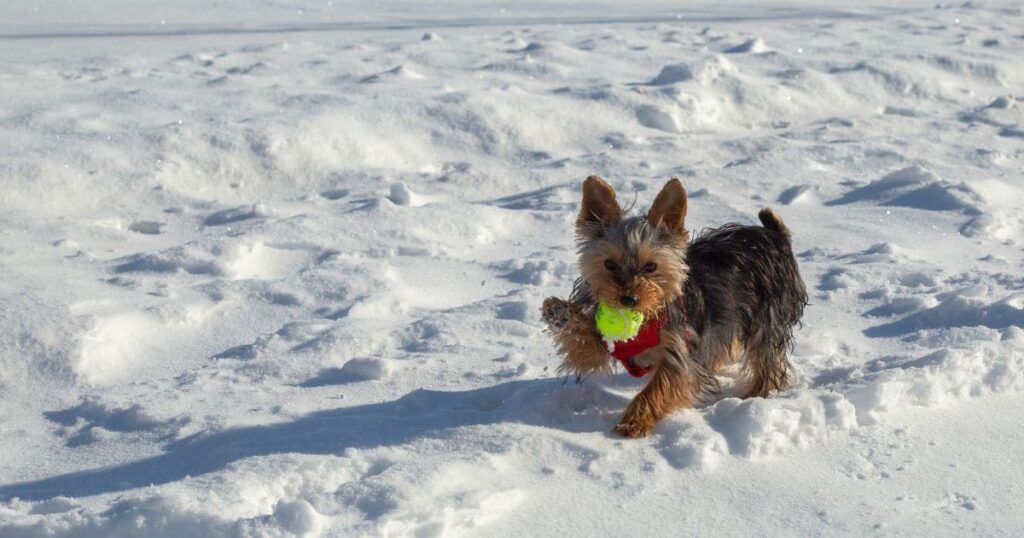
Watch for Signs of Dental Issues
Being alert about potential dental problems is crucial:
- Behavioral Changes: Monitor for changes in eating habits, excessive salivating, pawing at the mouth, or avoidance of chew toys.
- Bad Breath: Yorkies are known for their lovable personalities, but if you notice persistent bad breath, it might be more than just a passing inconvenience. Bad breath can often indicate major dental problems such as gum disease or tooth decay.
To address this concern effectively, it’s wise to consult your trusted veterinarian. Their expertise will help you identify the root cause of the issue and take timely measures to ensure your Yorkie’s oral health is on the right track.
Be Consistent
Consistency is key when it comes to Yorkie dental care:
- Establish a Routine: Make dental care a routine part of your Yorkie’s life. This helps them become familiar with the process.
- Patience and Positivity: Approach dental care with patience and positivity. Reward your Yorkie after each successful brushing session.
By incorporating these preventive measures into your Yorkie’s routine, you’re taking proactive steps to maintain their dental health and overall well-being. Remember that the dedication you invest in their dental care will reflect in their radiant smile, comfort, and vitality.
Common Dental Problems in Yorkies
Cavities and Tooth Decay
Cavities, also known as dental caries, can affect Yorkies just as they do humans. Poor dental hygiene and excessive consumption of sugary treats can lead to the formation of cavities. Signs of cavities may include:
- Visible Holes or Dark Spots: Examine your Yorkie’s teeth for any visible signs of holes or dark spots.
- Refusing to Chew: If your Yorkie avoids chewing on one side of their mouth, it might indicate dental discomfort.
Untreated cavities can grow, leading to pain, infection, and potential tooth loss. Early detection and care are crucial to prevent further difficulties.

Gum Disease (Gingivitis and Periodontitis)
Gum disease is a common problem among Yorkies, often starting with gingivitis, an inflammation of the gums. If left untreated, gingivitis can progress into periodontitis, a more severe form of gum disease. Look out for:
- Red, Swollen, or Bleeding Gums: These are common signs of gum inflammation (gingivitis).
- Receding Gums and Bad Breath: You may notice loosening gums and continuous bad smells as gum disease progresses.
Gum disease can lead to pain, discomfort, tooth mobility, and even tooth loss. Regular dental care and professional cleanings are vital to prevent and manage gum disease.
Retained Deciduous Teeth
Yorkie puppies typically have deciduous (baby) teeth that should fall out as permanent teeth emerge. However, sometimes these baby teeth don’t shed as they should, leading to persistent deciduous teeth. Signs include:
- Double Rows of Teeth: You might notice both baby and permanent teeth in your Yorkie’s mouth.
- Difficulty Chewing: Chewing difficulties can arise due to the presence of extra teeth.
Persistent baby teeth can cause misalignment, overcrowding, and an increased risk of dental problems. Veterinary assistance is necessary to remove retained teeth if needed.

Plaque and Tartar Buildup
Plaque, a sticky film of bacteria, can be produced on your Yorkie’s teeth, hardening into tartar over time. This buildup can lead to various dental issues. Look for:
- Yellow or Brown Deposits: Tartar buildup appears as yellow or brown residues on the teeth.
- Gingivitis and Bad Breath: Plaque and tartar formation often contribute to gum inflammation and bad breath.
Regular tooth brushing, dental chews, and professional cleanings are effective in preventing and managing plaque and tartar buildup.
By familiarizing yourself with these common dental problems that Yorkies may face, you’re ready to take proactive steps to safeguard their oral health. Recognizing the symptoms of cavities, gum disease, persistent teeth, and plaque buildup allows you to address these concerns early and prevent potential issues.
Tips for Addressing Dental Issues
Recognizing Signs of Dental Discomfort
Keeping a close eye on your Yorkie’s behavior and habits might help you discover any dental problems. Keep an eye out for changes in their eating habits, such as an opposition to hard food or a refusal to eat at all.
Excessive salivating may also indicate oral discomfort. If you notice irritation, pawing at the mouth, or avoiding contact around the face, these are symptoms that you should look into further.
Consulting Your Veterinarian
Consultation with your trustworthy veterinarian is the first step in managing dental issues. A professional assessment is the cornerstone of an accurate diagnosis.
During this evaluation, your veterinarian will conduct a comprehensive examination to identify the nature and extent of the issue. In some cases, advanced diagnostic tools such as X-rays or specific dental tests might be recommended to gain deeper insights into the problem.
Treatment Options
Based on the diagnosis, your veterinarian will recommend suitable treatment options:
- Dental Cleaning: Professional dental cleaning under anesthesia can effectively tackle plaque, tartar, and gum disease.
- Tooth Extraction: If a tooth is hardly damaged or causing discomfort, your veterinarian might recommend extraction.
- Medications: Antibiotics or pain relievers might be prescribed to manage infections or discomfort.
At-Home Care After Treatment
Post-treatment care is a critical phase in your Yorkie’s journey towards oral recovery. Sticking to the care instructions provided by your veterinarian is crucial in ensuring a smooth recovery process. During this time, providing your Yorkie with a soft diet is advisable.
As the recovery progresses, you can gradually reintroduce their regular diet. Resuming gentle tooth brushing as directed by your veterinarian is essential to maintaining the oral health achieved through professional treatment.
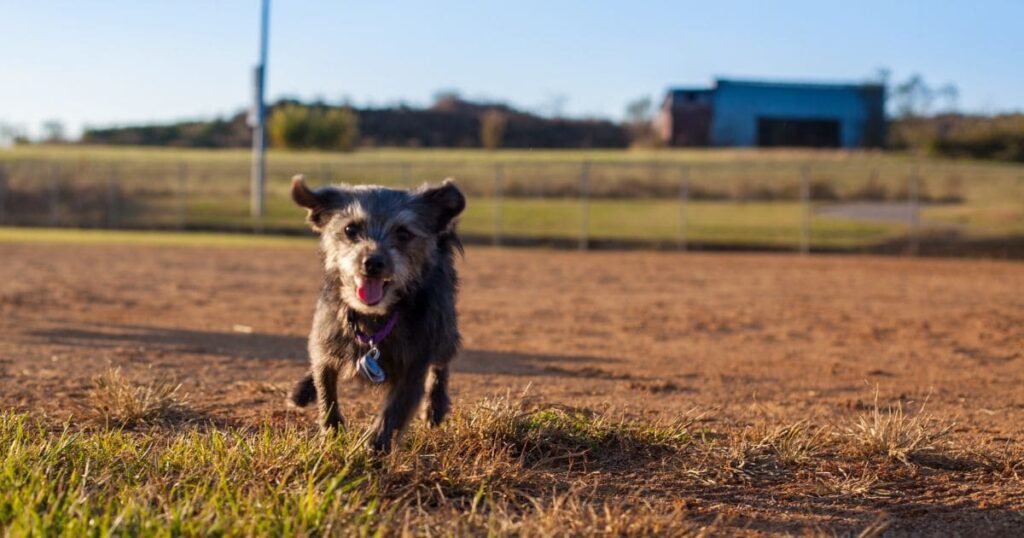
Prevention Moving Forward
While resolving existing tooth issues is critical, preventive actions are as important in your Yorkie’s long-term oral health. Maintain a consistent dental care practice that includes tooth brushing and dental chews.
Routine dental examinations are also essential. Scheduling regular dental checks with your veterinarian helps in early detection and professional advice, promoting your Yorkie’s beautiful and healthy smile.
Frequently Asked Questions
1. How Often Should I Clean My Yorkie’s Teeth?
Regular dental care is crucial in maintaining your Yorkie’s oral health. Aim to brush their teeth several times a week using a dog-specific toothbrush and toothpaste. This routine helps prevent plaque buildup, ensuring their smile remains as bright as ever.
2. Can I Use Human Toothpaste for My Yorkie’s Teeth?
No, using human toothpaste for your Yorkie is not recommended. Human toothpaste contains ingredients that can be harmful to dogs if consumed. Opt for toothpaste formulated specifically for dogs, as it’s safe and designed to fulfill their oral health requirements.
3. How Can I Keep My Yorkie’s Breath Fresh?
Fresh breath is a sign of good dental health. Regular tooth brushing, dental chews, and dental-friendly toys all contribute to maintaining fresh breath. If your Yorkie’s breath becomes persistently unpleasant, it may indicate an underlying dental issue, and consulting your veterinarian is advisable.
4. When Do Yorkies Start Losing Their Puppy Teeth?
Similar to humans, Yorkies puppies undergo a teething process. Typically, their puppy teeth start falling out around the age of 4 to 6 months. These temporary teeth are gradually replaced by permanent adult teeth. Providing an appropriate selection of teething toys and soft meals during this age helps ease the adjustment.
5. What Are Some Signs of Dental Issues in Yorkies?
Observing your Yorkie’s behavior can provide useful information about their dental health. Signs of dental problems might include bad breath, difficulty eating, excessive salivating, and behavioral changes such as pawing at the mouth or avoiding contact near the face. If you notice any of these signs, it’s advisable to seek a professional assessment.
Conclusion
Dental care emerges as a cornerstone of the Yorkie relationship. We’ve uncovered the complicated nature of Yorkies’ dental health in this guide. From prevention to intervention, from dental-friendly toys to professional exams, each aspect is crucial.
You go on a path to preserve your beloved friend’s everlasting glittering smile by adopting the advice offered here. Prioritizing their dental health, like any other area of care, shows the unbreakable bond you share.
You’re not only improving their quality of life by making informed decisions and taking proactive actions, but you’re also cultivating a relationship based on the essence of care, compassion, and everlasting smiles.



